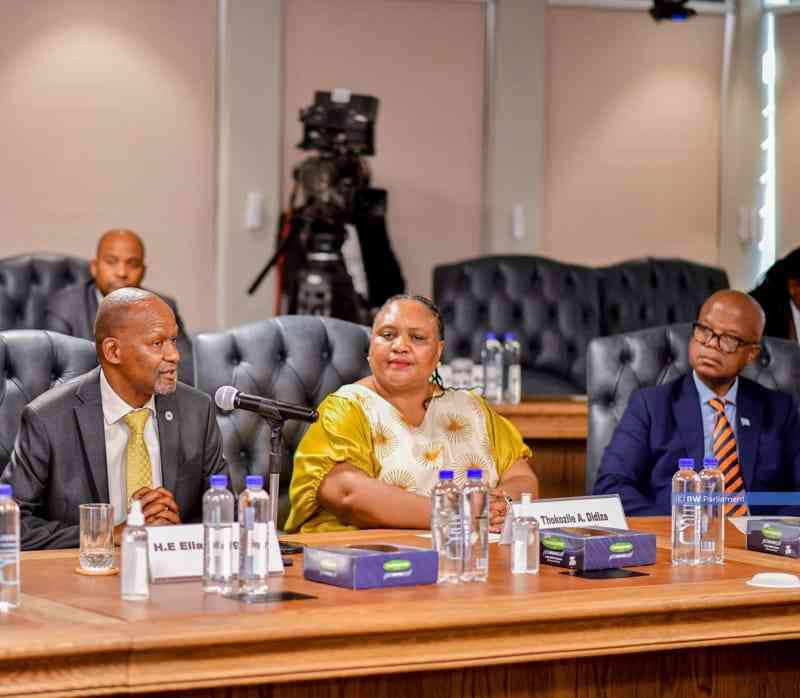
GABORONE - Sadc executive secretary Elias Magosi, has hailed recent moves to transform the Sadc Parliamentary Forum (Sadc PF) into a regional parliament.
Magosi made the call after Botswana President Duma Boko last week signed the agreement to amend the Sadc treaty paving way for the establishment of the proposed Sadc parliament.
Mauritius now remains the only Sadc member state to sign the pact.
He, however, called for the active involvement of the region’s parliaments to ensure swift ratification of all regional instruments.
Magosi described the signing of the agreement as a “momentous occasion” and a critical step towards regional integration, and commended all the people who worked over the years to reach the milestone.
“We did not despair,” Magosi said, adding, “There have been layers of leaders that have come before you to lay the foundation and here we are now with you signing this important instrument. We must commend the country and the previous leaders, but we must commend you that you came in a short space of time, and you found it very, very important to append the signature.”
Magosi stressed that the establishment of a regional parliament is not just symbolic, but a necessary evolution in Sadc’s institutional development, especially for enhancing democratic governance, oversight, and the harmonisation of laws across member states.
“It is there to make sure that it enhances governance of our region such that we also perform effectively,” he said.
- Women’s caucus seeks inclusive governance
- Sadc implores journos to amplify food aid appeals
- Sadc PF committee meets over spike in electoral risks
- SADC PF President speaks on terrorism and prevention of violent extremism
Keep Reading
“The laws that are there need an independent voice, an independent eye that makes sure that the region and the respective member states follow laws in the manner that serves our region, our member states and our citizens,” Magosi said.
He, however, expressed concern over the longstanding disconnect between presidential signatures at the Sadc summit and the slow pace of ratification by member states’ parliaments - delays that have plagued several regional instruments for up to 20 years.
“One of the goals that I have in this role is to make sure that member states sign these instruments that have been with us for quite some time,” Magosi said.
He explained, “When we approve the agreement, there is a gap between the signature of their Excellencies at the Sadc summit and the ratification signatures. It often takes between 5 and 20 years, and we wonder what the cause of this delay is.”
He noted that this delay is particularly alarming given that all necessary internal reviews by legal departments and ministries are assumed to be completed before presidential sign-off, and therefore, ratification should proceed without unnecessary bureaucratic hurdles.
“Sadc is only as strong as its instruments. Sadc is as effective as the effectiveness of such instruments. And for those instruments to come into effect, they must be signed, they must be ratified,” he stressed.
Magosi pleaded with legislators across the region to actively champion the ratification and domestication of signed instruments.
“It is a plea to all of us who are Members of Parliament from the region that indeed we interrogate these instruments and assist us to move them quickly. We can be as fast as member states can be,” he said.
He expressed optimism that if remaining technical inputs are received on time, the instrument establishing the Sadc regional parliament could be finalised and presented at the upcoming 45th Sadc summit in Madagascar.
He called for the envisaged regional parliament to be seen and nurtured as a credible, effective, and value-adding institution that differs from other continental bodies.
“We are developing a regional parliament. It must be seen to be effective, and we are the Members of Parliament who can make it effective... We must preserve and protect it so that it adds value to the region; it adds value to the member states.”










